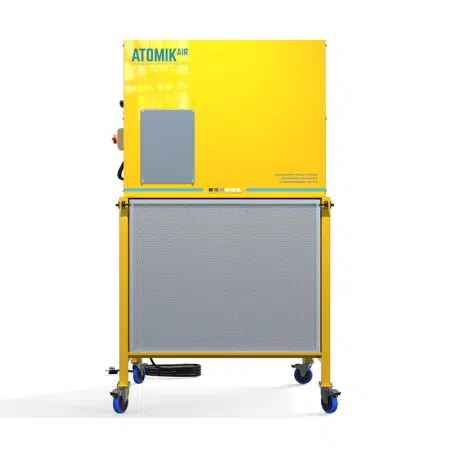In the bustling world of manufacturing, maintaining a clean and healthy work environment is paramount. Industrial air filtration systems play a vital role in achieving this goal by effectively removing harmful pollutants and contaminants from the air. But what exactly are these systems, and what benefits do they offer to factories? Let’s delve deeper into this crucial component of modern industrial facilities.
What is an Industrial Air Filtration System?
An industrial air filtration system is a sophisticated apparatus designed to purify the air within manufacturing facilities by capturing and eliminating various airborne particles, gases, and pollutants. These systems employ a combination of filters, ventilation mechanisms, and purification technologies to ensure that the air circulating in the workspace is clean and safe for workers and machinery alike.
Components of Industrial Air Filtration Systems:
-
Filters: Industrial air filtration systems utilize a variety of filters to trap different types and sizes of particles. Common filter types include HEPA (High-Efficiency Particulate Air) filters, activated carbon filters, electrostatic filters, and UV filters. Each filter serves a specific purpose, ranging from capturing dust and pollen to neutralizing harmful gases and odors.
-
Ventilation Systems: Proper ventilation is crucial for maintaining optimal air quality within industrial environments. Industrial air filtration systems often incorporate ventilation systems that regulate airflow and ensure the efficient distribution of clean air throughout the facility. This helps prevent the buildup of pollutants and maintains a comfortable working environment for employees.
-
Purification Technologies: Some advanced industrial air filtration systems employ cutting-edge purification technologies such as ionization, ozone generation, and photocatalysis to neutralize contaminants at the molecular level. These technologies enhance the effectiveness of air purification and provide an extra layer of protection against airborne pathogens and pollutants.
Benefits of Installing an Industrial Air Filtration System:
-
Improved Air Quality: The primary benefit of installing an industrial air filtration system is the significant improvement in air quality. By removing dust, fumes, smoke, and other airborne contaminants, these systems create a cleaner and healthier work environment for employees, reducing the risk of respiratory problems and allergies.
-
Enhanced Worker Safety: Clean air is essential for ensuring the safety of workers in industrial settings. Industrial air filtration systems help mitigate the risks associated with exposure to hazardous substances, such as chemicals, pollutants, and airborne pathogens, thereby reducing the likelihood of occupational illnesses and injuries.
-
Increased Productivity: A clean and healthy work environment can have a positive impact on employee productivity. By reducing distractions caused by poor air quality and promoting a more comfortable atmosphere, industrial air filtration systems enable workers to focus better on their tasks, leading to higher efficiency and output.
-
Extended Equipment Lifespan: Airborne particles and contaminants can wreak havoc on machinery and equipment in industrial facilities, causing premature wear and tear and costly repairs. By removing these pollutants from the air, industrial air filtration systems help prolong the lifespan of equipment, reducing maintenance costs and downtime.
-
Compliance with Regulations: Many industrial sectors are subject to stringent regulations governing air quality and pollution control. Installing an industrial air filtration system can help factories comply with these regulations and avoid fines or penalties for exceeding emission limits or endangering public health.
In conclusion, industrial air filtration systems play a crucial role in maintaining a safe, healthy, and productive work environment within manufacturing facilities. By effectively removing airborne pollutants and contaminants, these systems offer a wide range of benefits, including improved air quality, enhanced worker safety, increased productivity, and regulatory compliance. Investing in an industrial air filtration system is not just a matter of convenience; it’s a strategic decision that can yield significant long-term advantages for factory owners and employees alike.
